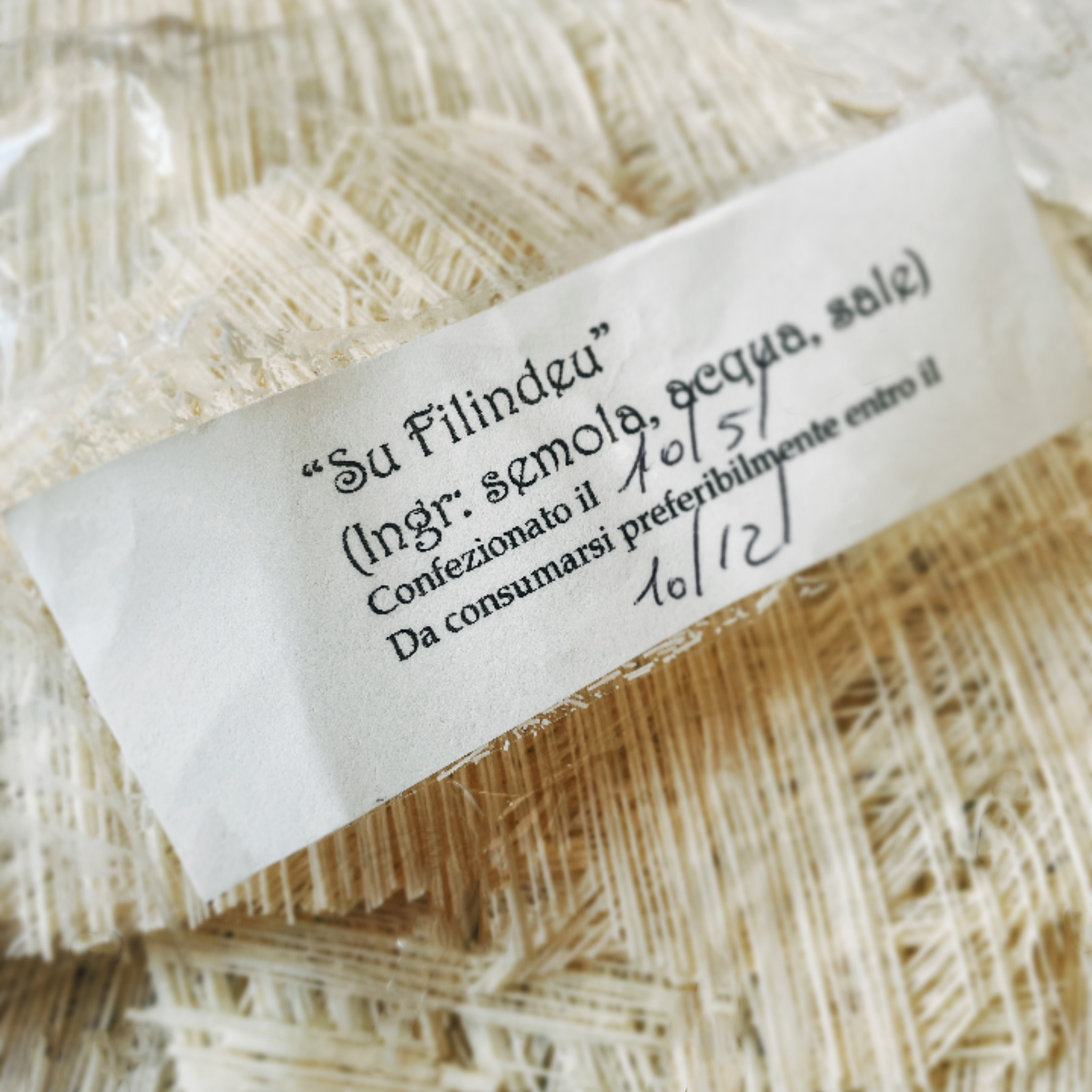There is some disagreement over where the name “su filindeu” comes from because as with many ancient and regional food names, there is always some room for interpretation..

The dominant theory
The most widely held belief is that “su filindeu” can be loosely translated as “threads of God”, a beautifully poetic name that perfectly captures the pasta’s delicate, almost ethereal appearance.
In Sardinian…
• “Su” means “the”
• “Filu” means “thread”
• “Deu” means “God”
Some have expanded on that theory by suggesting that the name may not have a strictly religious connotation, but could instead reflect the pasta’s extraordinary craftsmanship, elevating it to something “divine” in a metaphorical sense.
Alternative theories
Sardian gastronome Paolo Solinas, an expert in Sardinian food culture, has found “su filindeu” mentioned in medieval documents and believes it can be traced back to Arab culture from at least 1000 years ago. He therefore believes that the most likely explanation for the name comes from the Arabic word “fidaws”, meaning “thin as hair.”
However, Paola Abraini, who is by many considered the greatest filindeu master in the world, always knew it as “Children of God” when she was taught the technique by her mother.
This could well be a subject that we’ll never get a categoric answer to.

The dominant theory
The most widely held belief is that “su filindeu” can be loosely translated as “threads of God”, a beautifully poetic name that perfectly captures the pasta’s delicate, almost ethereal appearance.
In Sardinian…
• “Su” means “the”
• “Filu” means “thread”
• “Deu” means “God”
Some have expanded on that theory by suggesting that the name may not have a strictly religious connotation, but could instead reflect the pasta’s extraordinary craftsmanship, elevating it to something “divine” in a metaphorical sense.
Alternative theories
Sardian gastronome Paolo Solinas, an expert in Sardinian food culture, has found “su filindeu” mentioned in medieval documents and believes it can be traced back to Arab culture from at least 1000 years ago. He therefore believes that the most likely explanation for the name comes from the Arabic word “fidaws”, meaning “thin as hair.”
However, Paola Abraini, who is by many considered the greatest filindeu master in the world, always knew it as “Children of God” when she was taught the technique by her mother.
This could well be a subject that we’ll never get a categoric answer to.

The dominant theory
The most widely held belief is that “su filindeu” can be loosely translated as “threads of God”, a beautifully poetic name that perfectly captures the pasta’s delicate, almost ethereal appearance.
In Sardinian…
• “Su” means “the”
• “Filu” means “thread”
• “Deu” means “God”
Some have expanded on that theory by suggesting that the name may not have a strictly religious connotation, but could instead reflect the pasta’s extraordinary craftsmanship, elevating it to something “divine” in a metaphorical sense.
Alternative theories
Sardian gastronome Paolo Solinas, an expert in Sardinian food culture, has found “su filindeu” mentioned in medieval documents and believes it can be traced back to Arab culture from at least 1000 years ago. He therefore believes that the most likely explanation for the name comes from the Arabic word “fidaws”, meaning “thin as hair.”
However, Paola Abraini, who is by many considered the greatest filindeu master in the world, always knew it as “Children of God” when she was taught the technique by her mother.
This could well be a subject that we’ll never get a categoric answer to.
